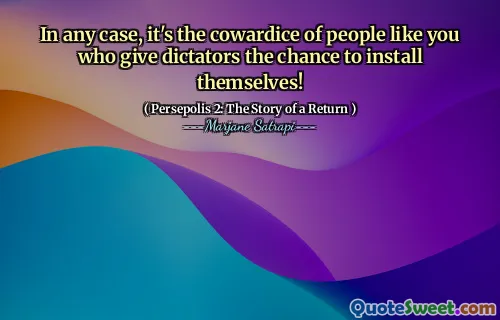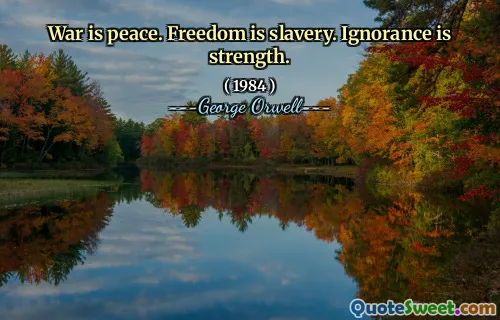The regime had understood that one person leaving her house while asking herself:Are my trousers long enough? Is my veil in place? Can my make-up be seen? Are they going to whip me?- No longer asks herself:Where is my freedom of thought? Where is my freedom of speech? My life, is it livable? What's going on in the political prisons?It's only natural! When we're afraid, we lose all sense of analysis and reflection. Our fear paralyzes us. Besides, fear has always been the driving force behind all dictators' repression.Showing your hair or putting on makeup logically became acts of rebellion.
The passage highlights how a regime instills fear in individuals, diverting their attention from fundamental rights and freedoms. When people are preoccupied with questions about their appearance and safety, they become less aware of their rights, such as freedom of thought and speech. This fear not only inhibits critical thinking but also reinforces the oppressive authority of dictators, effectively silencing dissent and reflection.
Acts that seem simple, like showing one's hair or applying makeup, transform into profound statements of defiance against such oppressive regimes. In this context, the fear created by dictatorial control alters the priorities of individuals, making them less likely to question larger political issues. As Satrapi illustrates, the impact of fear is pervasive, undermining the very essence of what it means to live freely and to think critically.






